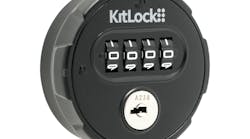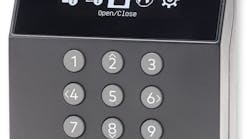The good news is your company is growing. The difficult news is you have to hire a new employee.
The business of locksmithing is not like most companies. It is not a chain operation that sells the same things, charging the same prices over and over again. As a locksmith, you may go to a job to rekey a lock, but the procedure for removing the lock from the door or the cylinder from the lock can differ between manufacturers. You just have to know which procedure works with what locks.
In addition, the employee normally bills and often collects for services rendered. They need to know the pricing policy as well as how to give change.
These are unique aspects of the locksmithing business that makes it challenging to hire the right kind of employee.
Hiring employees is divided into two categories, hiring someone who is experienced with a good track record or hiring someone with little or no locksmithing experience. Hoping through the interviewing process you discover they are mechanically inclined, are honest, willing, and able to learn quickly.
The quickly is a big part of the problem. No one seems to want to hire before they really need a new employee.
Finding a qualified employee can be very difficult and really boils down to the individuals' personality. Someone who has the experience and the talent may be a wonderful worker, honest and has a comfortable persona. Then why is he or she looking for a job? Why did they leave a pervious employer?
As an alternative, some companies attempt to hire valuable employees away from their current employment.
When hiring an experienced person, offer a four to six week paid probationary periodin an attempt to insure finding a qualified employee. If the employee lives up to the discussed agreement, full employment is offered. Experienced employees command a higher pay scale.
The alternative is to find a person with mechanical aptitude and train them. Determining the mechanical aptitude can sometimes become known during the hiring process by asking questions about previous employment including their work history. Then ask the applicant to demonstrate their abilities, lets say combinating a plug to a given key and other tests.
With a newbie, some locksmith companies offer a longer probationary period with a lower pay scale that improves with experience. This can be advantageous as the new employee will learn your companies' methods and not come in with too many bad habits. The disadvantage is you will have to pick and choose the jobs the employee goes out on until they develop sufficient expertise. Part of the learning process will require having an experienced employee shepherd them through early and more complex service calls.
What is your experience with employment, either as the employee or employer? As an employer, do you have new hires sign a non-compete contract, agreeing they will not open a store in a specific area or attempt to steal your customers if they leave your employment.





